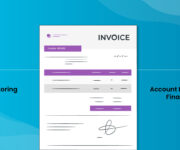The greatest benefit of the amalgamation of digital technologies is that data from various sources can be brought together in one place for better effectiveness. Even in the world of financial services, cutting-edge technologies that have been introduced have brought a shift in the consumer expectations of speed, safety, and security. This kind of varying customer expectations has given way to the concept of Account Aggregation (AA).
Today, when the world struggles with data privacy and consent, account aggregators allow both individuals and businesses to share their data in digital form with third parties that too more safely. But most importantly, this platform gives users the complete idea and control over how their data will be used, which includes their right to revoke their consent at any time.
Account aggregators are one of the newest categories of the non-banking financial companies (NBFC) that figures out India Stack.
What is India Stack?
India Stack is a set of APIs made available by the government for both public and private infrastructures. They can make use of the APIs as baseline infrastructure on top of which they can innovate. This saves them both time as well as money and lets them create their own APIs. This, in turn, allows them to build an open ecosystem where public and private infrastructures can coordinate, collaborate, and innovate.
India Stack has got four layers:
1. Presence-less layer
This is mainly implemented through the Aadhaar infrastructure and is used as a universal biometric digital identifier through which citizens can access the services.
2. Paperless layer:
This is being implemented through Aadhaar e-KYC, E-sign, etc. wherein it digitises records, eliminating paper collection, and storage.
3. Cashless layer:
Implemented through IMPS and UPI, this is a single interface that connects the country’s bank accounts and wallets in order to equalise the payments.
4. Consent layer:
This is implemented through the Data Empowerment and Protection Architecture (DEPA). This allows people to have control over their data and gives visibility on how it is used, stored, and shared.
Role of Account Aggregators as Consent Managers in India

The Reserve Bank of India (RBI) has created the AAs as a viable route to address the challenges posed by the creation of data by enabling data-sharing among financial sectors with customer consent. Its main intention is to provide a method through which customers can consent or not to a financial service provider to access their personal data held by other entities. With regard to this, the providers are interested in this part, as the information shared by the customers, such as their bank statements, will allow them to understand customer risk profiles better.
The main aim behind this is that the consent-based data sharing will help out the poorer customers qualify for a better and broader range of financial products and receive them in better terms as needed. The AAs are, however, barred from seeing, storing, analysing, or using customer data. They simply act as consent managers who are trusted and impartial intermediaries between users and providers of the data.
How will Account Aggregators impact the Financial Landscape in India?
With the Account aggregators becoming more and more common these days, the financial landscape will change drastically.
1. Best Practices for Security and Privacy
The Account Aggregators framework prescribes strict rules concerning data privacy, security, and access. Hence any organisations participating in AAs shall follow these policies for trustworthy data sharing.
Account aggregators will encourage organisations to follow these standardised privacy and security practices like data masking, encryption, explicit consent from a user before their data is accessed.
2. Standardised Financial Information
Once the AA architecture has been implemented, it helps in standardising financial information across the financial landscape. After all, when different organisations store the data in different formats, data cannot be easily shared.
Sharing and storing the data in the same structure will make it easier and quicker to transfer information and create underwriting algorithms or other mechanisms.
3. Safe Data Storage and Sharing
With AA policies, organisations will have to follow stricter security and privacy policies in order to share the data. It will mean no more extemporary ways of storing, maintaining, and sharing data.
The most important highlight is that AAs will remove the risk of leakage of financial data during printing and sharing it in branch offices or while downloading it as PDFs and sharing them on emails, etc.
4. Better Trusts
Implementing AA will help the organisations to build more trust with their customers. Firstly, by making explicit consent, customers will check what all information an organisation will have about them.
Secondly, by implanting AA policies, there will be a higher degree of trust and security while sharing the financial data.
5. Clear Data Consent and Logs
The biggest highlight with Account aggregators is that customers will always have access to their data whenever they want and will have their data transactions logs.
This is completely different from where you have to give your documents to an organisation forever. Here, customers can revoke access and take their documents back without making physical visits to the branches.
Account Aggregators as Consent Managers
These are the interesting times financially not only in India but across the whole world. With the global sentiment turning increasingly in favour of secure and safe systems for managing personal data, Account aggregators have already been implemented by many countries wherein it empowers consumers to take control over their financial data.
The AAs allow faster access to consented data of the customers and small businesses. It allows the lenders to get to know a potential borrower’s credit risks and thereby process more loan applications at a faster pace without compromising its safety and security of the data.
Being a technology provider for the Account aggregator ecosystem, Finezza ensures that it is value-added in each interaction that we make with you, and integrity is maintained at a higher level at all times. Our end-to-end lending lifecycle management system follows the Open Credit Enablement Network (OCEN) framework which can be leveraged by Account aggregators.




Leave a Reply